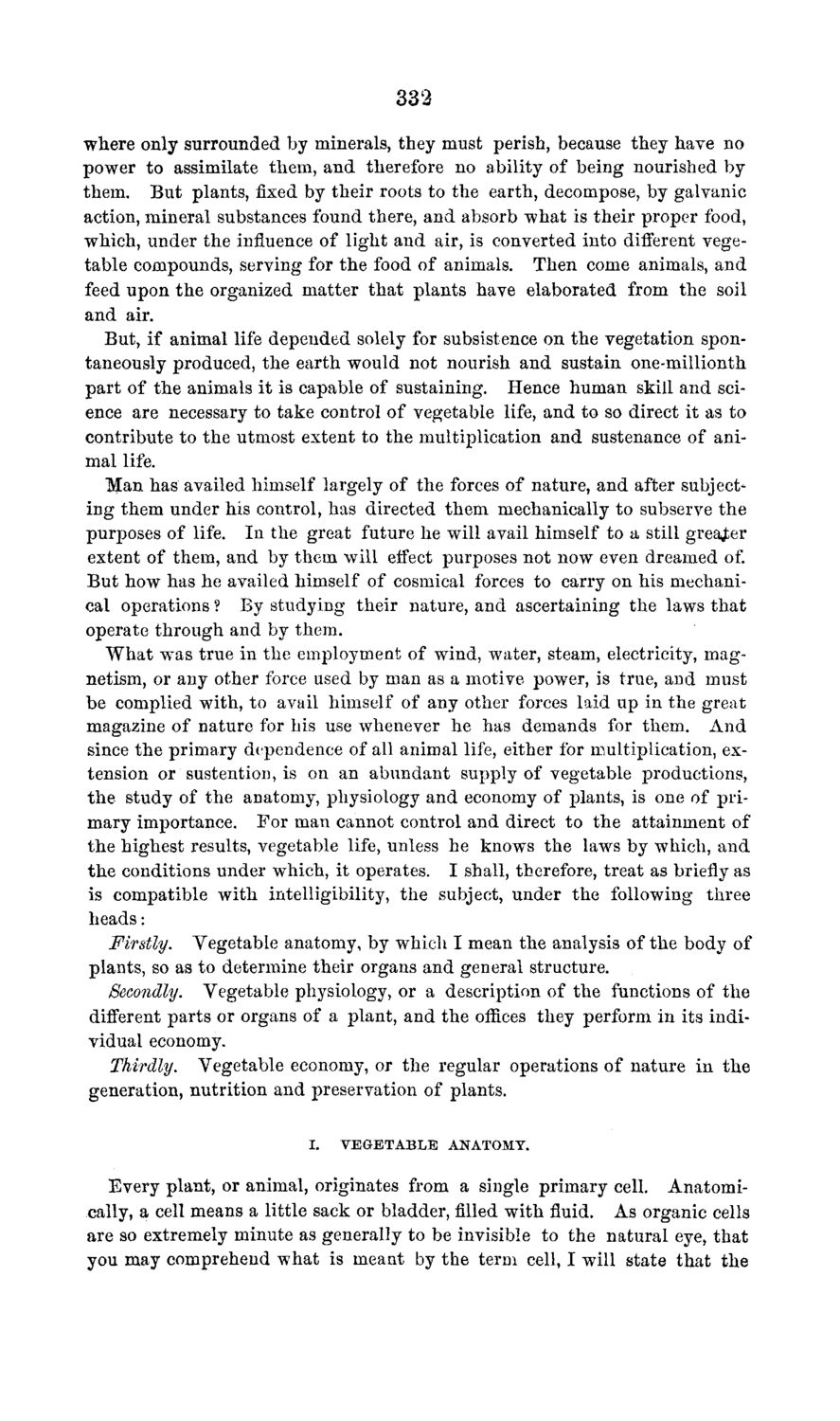| |
| |
Caption: Board of Trustees Minutes - 1869
This is a reduced-resolution page image for fast online browsing.

EXTRACTED TEXT FROM PAGE:
332 where only surrounded by minerals, they must perish, because they have no power to assimilate them, and therefore no ability of being nourished by them. But plants, fixed by their roots to the earth, decompose, by galvanic action, mineral substances found there, and absorb what is their proper food, which, under the influence of light and air, is converted into different vegetable compounds, serving for the food of animals. Then come animals, and feed upon the organized matter that plants have elaborated from the soil and air. But, if animal life depended solely for subsistence on the vegetation spontaneously produced, the earth would not nourish and sustain one-millionth part of the animals it is capable of sustaining. Hence human skill and science are necessary to take control of vegetable life, and to so direct it as to contribute to the utmost extent to the multiplication and sustenance of animal life. Man has availed himself largely of the forces of nature, and after subjecting them under his control, has directed them mechanically to subserve t h e purposes of life. In the great future he will avail himself to a still greater extent of them, and by them will effect purposes not now even dreamed of. But how has he availed himself of cosmical forces to carry on his mechanical operations ? By studying their nature, and ascertaining the laws t h a t operate through and by them. W h a t was true in the employment of wind, water, steam, electricity, magnetism, or any other force used by man as a motive power, is true, and must be complied with, to avail himself of any other forces laid up in the great magazine of nature for his use whenever he has demands for them. And since the primary dependence of all animal life, either for multiplication, extension or sustention, is on an abundant supply of vegetable productions, t h e study of the anatomy, physiology and economy of plants, is one of primary importance. For man cannot control and direct to the attainment of the highest results, vegetable life, unless he knows the laws by which, and the conditions under which, it operates. I shall, therefore, treat as briefly as is compatible with intelligibility, the subject, under the following three heads: Firstly. Vegetable anatomy, by which I mean the analysis of the body of plants, so as to determine their organs and general structure. Secondly. Vegetable physiology, or a description of the functions of the different parts or organs of a plant, and the offices they perform in its individual economy. Thirdly. Vegetable economy, or the regular operations of nature in t h e generation, nutrition and preservation of plants. I. VEGETABLE ANATOMY. Every plant, or animal, originates from a single primary cell. Anatomically, a cell means a little sack or bladder, filled with fluid. As organic cells are so extremely minute as generally to be invisible to the natural eye, that you may comprehend what is meant by the term cell, I will state that the
| |